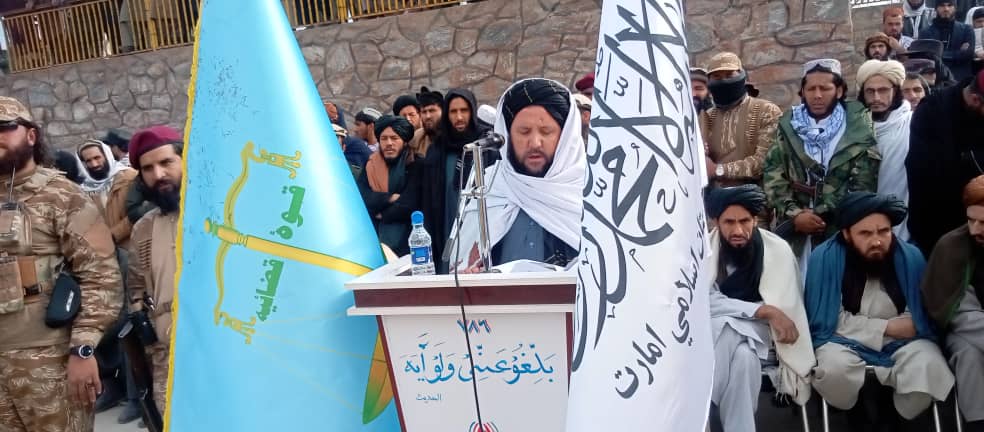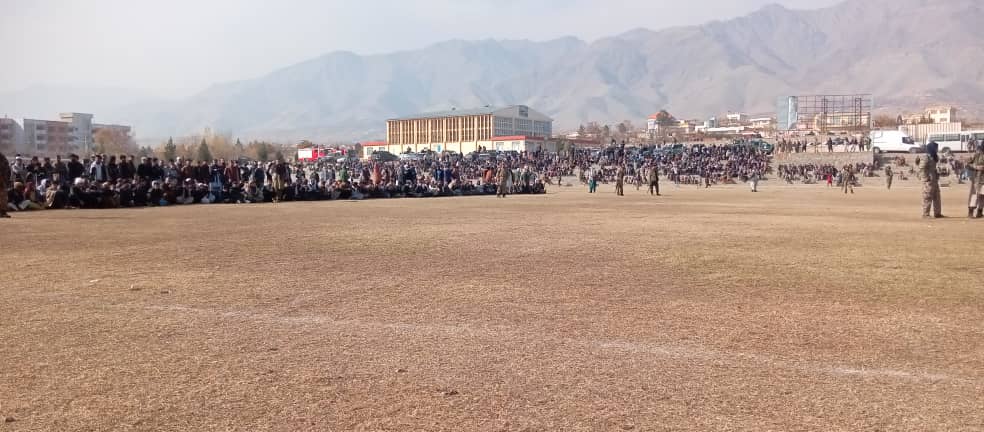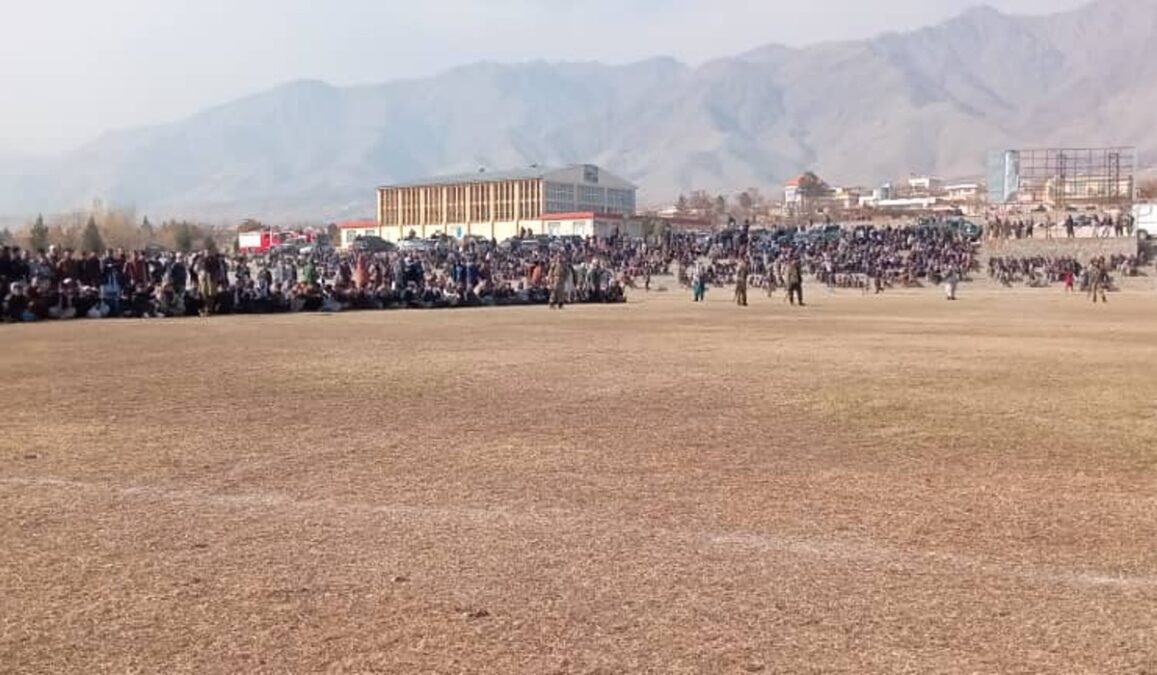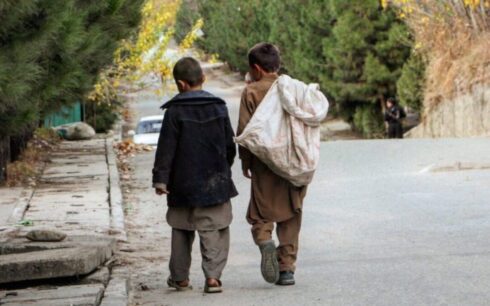Taliban publicly flogged 27 people, including 9 women, in Parwan on Thursday morning over charges of robbery, drug use and moral crimes, a spokesman of the group, Zabihullah Mujahid said.
He said each of the accused was lashed 20 to 35 times.
Mujahid added that three people were lashed for similar charges in Paktika province.
This comes as Taliban leaders, including the group’s deputy chief minister, gathered to watch the public Qisas, or retributive execution under Sharia law, of a man accused of murder in western Farah province in Afghanistan on Wednesday.
According to a Taliban media office statement, the executed man was Tajmir son of Ghulam from Jalwarja village in the Injil district of western Herat province. He was accused of killing another man, Mustafa from Farah province, the statement said.

The Taliban stated that Tajmir, the accused, was shot dead by the victim’s father.
Taliban deputy chief minister Mullah Baradar, Taliban supreme court chief Abdul Hakim Haqqani, Taliban interior minister Sirajuddin Haqqani, Taliban foreign minister Amir Khan Muttaqi, Taliban minister of vice and virtue Mohammad Khalid Hanafi, Taliban justice minister Mawlawi Abdul Hakim Sharaee, and Taliban chief spokesman Zabihullah Mujahid were among key officials of the group who watched the execution.
After the Taliban’s supreme leader Mullah Haibatullah Akhundzada ordered the implementation of Hudud, which is the amputation of hands and feet, public lashings, and Qisas, a similar punishment for an offender as he has caused to the victim.

The Taliban publicly flogged 19 men and women in Takhar province just days after the announcement. Nine men and four women were also whipped on November 23 in Puli Alam stadium in Logar province.
The United Nations, meanwhile, called the Taliban’s flogging of Afghan citizens a “cruel” act. In a press conference Farhan Haq, a spokesperson for the UN, stated: “We are against any kind of cruel punishments.”
The public execution by the Taliban has sparked huge reactions at national and international levels.
The United Nations office in Afghanistan called for the reversal of such a decision by the Taliban and said the UN is opposed to the death penalty under any circumstances.
What is believed to be the first public execution in Afghanistan since the Taliban seized power last year, drew criticism from the UN human rights office, OHCHR said on Wednesday. The agency described it as a “deeply disturbing” development.





